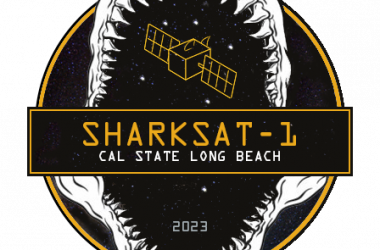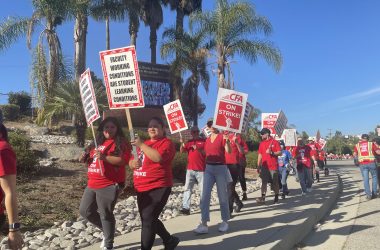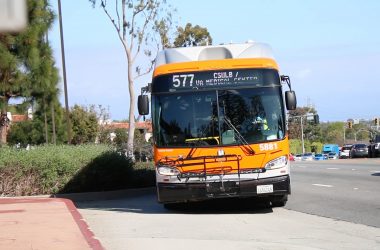It’s doubtful that the thieves of a ten-foot cross adorned with antlers realized that they were stealing from sacred grounds on June 14.
Most people on campus are unaware of the spiritual significance that the 22-acre field holds for Southern California Native Americans.
“I had no idea about the purpose of the land,” said Steve Hughes, a music performance alumni and current employee of the Carpenter Center.
This was a common response after asking several Cal State Long Beach students and alumni.
“The whole university is sacred,” Juaneño tribal leader Rebecca Robles explained. “Only the 22 acres are left untouched.”
Puvungna, established in A.D. 500, is the geographical area from San Francisco to San Diego.
“Puvungna means a gathering place,” Native American Heritage Commission Executive Secretary Larry Myers said. “It’s there for anyone who wants to honor the site.”
The Southern California tribes in this area believe in one god named Chinigchinich. His creation story is celebrated at the 22-acre field.
The story of Chinigchinich is 7,000 years old, according to Jonathan Stein, lawyer for the Gabrielino and Tongva tribes. They keep Chinigchinich’s story alive by “handing it down culturally,” he said.
The Gabrielino and Tongva tribes lived on CSULB property before it was built in 1949. They also lived in Seal Beach and Los Alamitos, according to Dave Singleton, program analyst for the heritage commission.
When the Franciscans arrived in 1763, they established missions from San Diego to San Francisco.
The Gabrielino and Tongva people helped build the San Gabriel Mission in 1791 in Los Angeles; their religion has been influenced by the Catholic Church ever since.
The Gabrielino and Tongva Indians had to blend the two religions despite their stark differences.
For example, the book of Genesis in the Christian religion states that humans come from Adam and Eve and that Adam was made from the dust off the ground.
For the Southern California tribes, “Puvungna is where the world started.” According to Stein, humans came from clay, molded by Chinigchinich.
The cross is a Catholic relic that reflects the current religious practices among tribal members, but its true purpose is to honor God, Chinigchinich, Stein said.
The theft is a “terrible event,” he added. “We hope it never happens again [and] we’d like to repair any damages.”
“It’s disrespectful,” said Sam Vitou, a sophomore business major.
The 22-acre field was declared sacred in 1974 for several reasons, according to Singleton.
First, it is where the creation story originated. Second, different tribes use the land to commemorate their ancestors. Third, “the site is considered to be integral to the tribe’s continued existence as a people,” Singleton said, referring to the heritage commission’s definition.
The site is also a burial ground with 21 buried ancestors. To honor them and others, there are three ancestor poles currently in place at the 22-acre field near parking lot 20.
They are decorated with items such as feathers, shells, beads, pictures, cloth and painted rocks.
According to nativeweb.org, Tongva member and elder Lillian Robles said that their ancestors walk spiritually beside them and that they give them strength when they need it.
Every October, several tribes honor their ancestors by traveling to different Native American villages from San Clemente to CSULB during the annual Ancestor Walk.
In 1993, the university attempted to build a strip mall on the 22-acre field, but they suspended their efforts when the Gabrielino and Tongva people filed a lawsuit, protesting the development.
Previous President Robert Maxson and current President F. King Alexander vowed not to develop on the 22-acre field.
“Native Americans are very misunderstood,” Myers said in response to CSULB’s development efforts.
CSULB professor, Tongva member and overseer of the 22-acre field, Cindi Alvitre, could not be reached for comment.
Disclaimer: The Daily 49er is not responsible for Postings made on www.daily49er.wpengine.com. Persons commenting are solely responsible for Postings made on this website. Persons commenting agree to the Terms of Use of the website. If Postings do not abide by the Rules of Conduct or Posting Regulations as listed in the Postings Policy, the Daily 49er has all rights to delete Postings as it deems necessary. The Daily 49er strongly advises individuals to not abuse their First Amendment rights, and to avoid language suggestive of hate speech. This site also encourages users to make Postings relevant to the article or other Postings.



